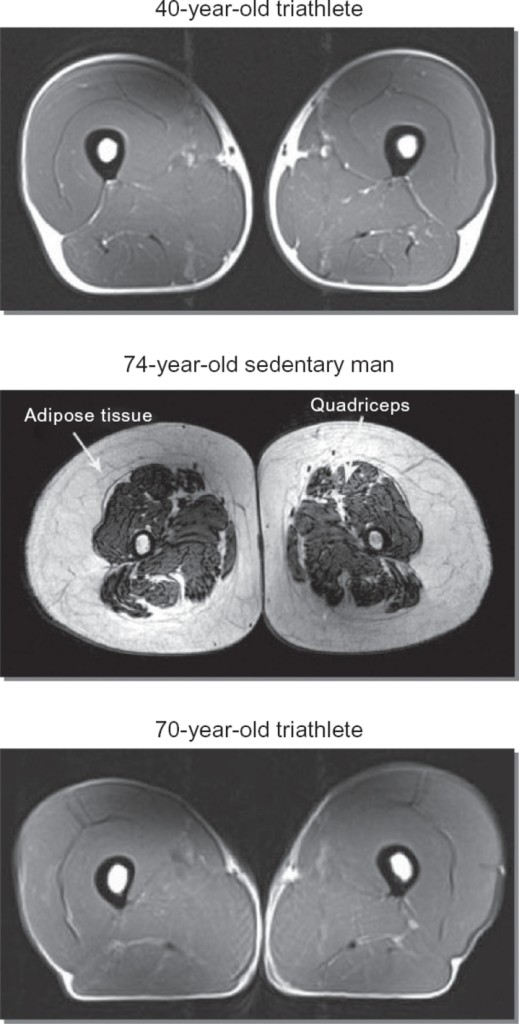For those us getting older (and really who isn’t?), the importance of regular physical exercise is important in so many ways – keeping obesity, heart disease, diabetes, high blood pressure and other chronic problems away. Running, biking, swimming and other physical activities have also been proven to maintain muscle mass and strength, according to a recent study conducted at the University of Pittsburg.
Most of us have fearfully read in fitness magazines that the loss of more and more muscle is inevitable with each passing year. In fact, past studies report that in the decade between 40 and 50 years, a person loses 8 percent of muscle mass – and each future decade results in an even greater percentage loss. Now, this has always made me wonder if I will just be some big blob of fat and bone by the time I’m 70 or 80 or older. I want to be a strong, healthy older person, not some frail lady with strength, balance and mobility issues that stem from barely-there muscle mass.
The good news is that this investigation, headed by Vonda Wright, MD (an orthopedic doctor), looked at physically active adults for their research, not the sedentary adults that make up the research groups of most past studies. The levels of both subcutaneous and intramuscular adipose tissue (that’s fat y’all) were quantified via magnetic imaging in the legs of 40 high-level recreational athletes between the ages of 40 and 81 years, fairly serious athletes who worked out 4 to 5 times per week. The results are readily apparent in these cross-section photos of the quadriceps area (see photos). There is virtually no difference between the 40 year old triathlete and the 70 year old triathlete – in fact, it looks like the young guy has just a touch more subcutaneous fat (gasp).
Personally, I enjoy a juicy, fat-marbled steak — but on my dinner plate, not my legs! You have to agree these photos are instant motivation to get out there and run, walk, bike, swim, climb a mountain or whatever makes you active!
Check out the full white paper on this study at Physician and Sportsmedicine: Volume: 39 No.3

